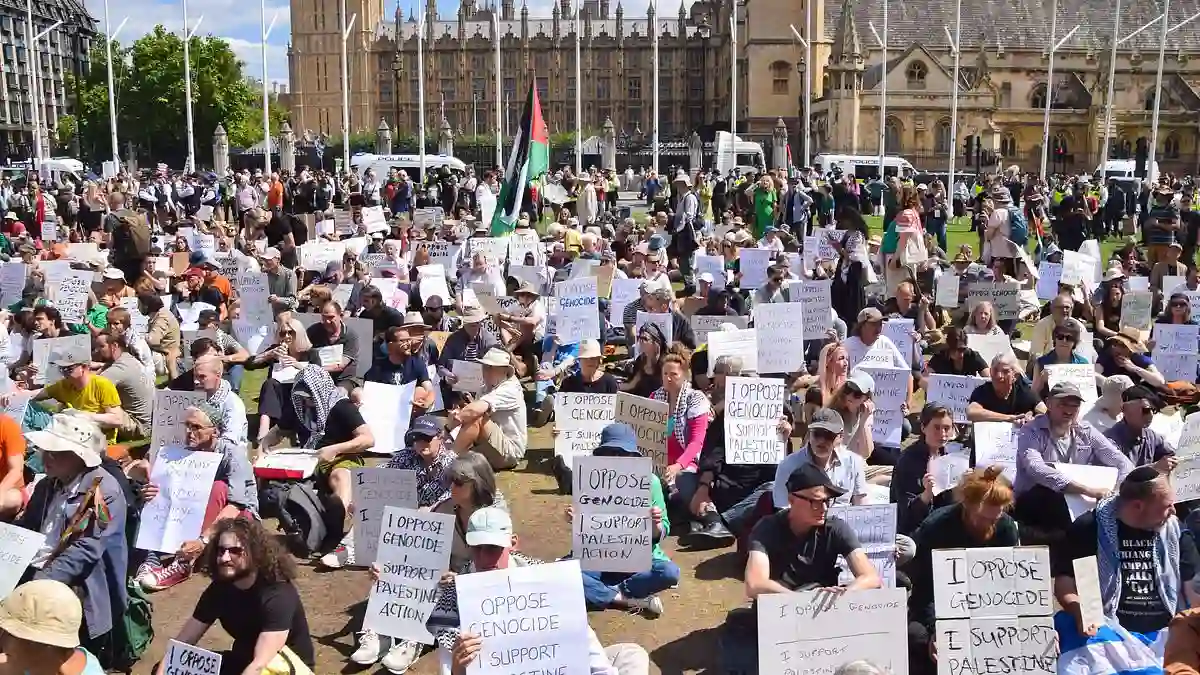Britain’s Equality and Human Rights Commission (EHRC) has expressed serious concern over what it calls “heavy-handed policing” of recent Palestine demonstrations.
Officials warn that overly aggressive tactics could discourage people from exercising their right to free speech and protest.
The commission, led by Baroness Kishwer Falkner, addressed a letter to Home Secretary Yvette Cooper and Metropolitan Police Commissioner Sir Mark Rowley, emphasizing that the right to protest is a cornerstone of democracy.
Baroness Falkner stressed that any interference with protest rights should be lawful and carefully assessed on a case-by-case basis.
The Chilling Effect on Free Speech
Baroness Falkner highlighted that excessive policing or blanket approaches could have a “chilling effect,” deterring citizens from speaking out or assembling due to fear of consequences.
She noted that this issue affects not only those directly confronted by police but also the wider health of democracy, as the public’s confidence in human rights protections could be undermined.
The EHRC also raised concerns about police interactions with individuals whose protests were not linked to any proscribed organization, noting reports where demonstrators faced potential arrest under terrorism laws simply for displaying Palestinian flags or signs such as “Free Gaza” and “Israel is committing genocide.”
Canterbury Incident Sparks Legal Action
One such case involved a woman in Canterbury, Kent, who said police threatened her under the Terrorism Act during a peaceful demonstration.
Officers claimed her protest supported Palestine Action, a banned organization, despite her signs mentioning no affiliation.
Kent Police confirmed correspondence from a legal firm representing her, indicating she is pursuing legal action.
The EHRC urged government and police authorities to ensure officers are given clear guidance on human rights obligations during protests.
“The guidance should maintain a proper balance between public safety and essential human rights,” Baroness Falkner said.
The Government’s Stance on Palestine Action
Palestine Action was banned by the UK Government in July, making membership or support for the group a criminal offence with penalties up to 14 years in prison under the Terrorism Act 2000.
Authorities have described the group as “violent,” citing criminal damage and harm caused, while the group denies these allegations and calls the government’s claims “false and defamatory.”
Downing Street maintains the proscription was supported by evidence and security assessments, while protesters insist their actions were peaceful expressions of solidarity with Palestine.
Massive Arrests at London Demonstrations
The policing of protests has sparked controversy, particularly after a chaotic march in London on August 9, when more than 500 activists were arrested, adding to over 700 arrests since the proscription of Palestine Action.
Protesters deliberately displayed placards in violation of the law, aiming to challenge police and court resources.
Metropolitan Police reported that more than 360 people were initially detained, with numbers climbing to 532 for alleged support of the proscribed group.
Authorities described this as a “colossal” waste of taxpayer money, estimating the cost at around £3 million.
Legal Consequences for Protesters
The Director of Public Prosecutions, Stephen Parkinson, confirmed that 60 additional individuals will face prosecution for supporting Palestine Action.
He stressed the importance of distinguishing lawful protest from criminal activity.
“People should be aware of the real-life consequences for supporting a proscribed organization,” Parkinson said, warning that terrorism convictions can severely impact careers, travel, and personal life.
He urged the public to carefully consider their actions during protests.
Balancing Democracy and Security
The situation underscores the tension between protecting democratic freedoms and enforcing laws against banned groups.
While citizens retain the right to protest peacefully, authorities are prepared to take swift action when demonstrations cross into criminal conduct, highlighting the delicate balance between public safety and fundamental human rights.
